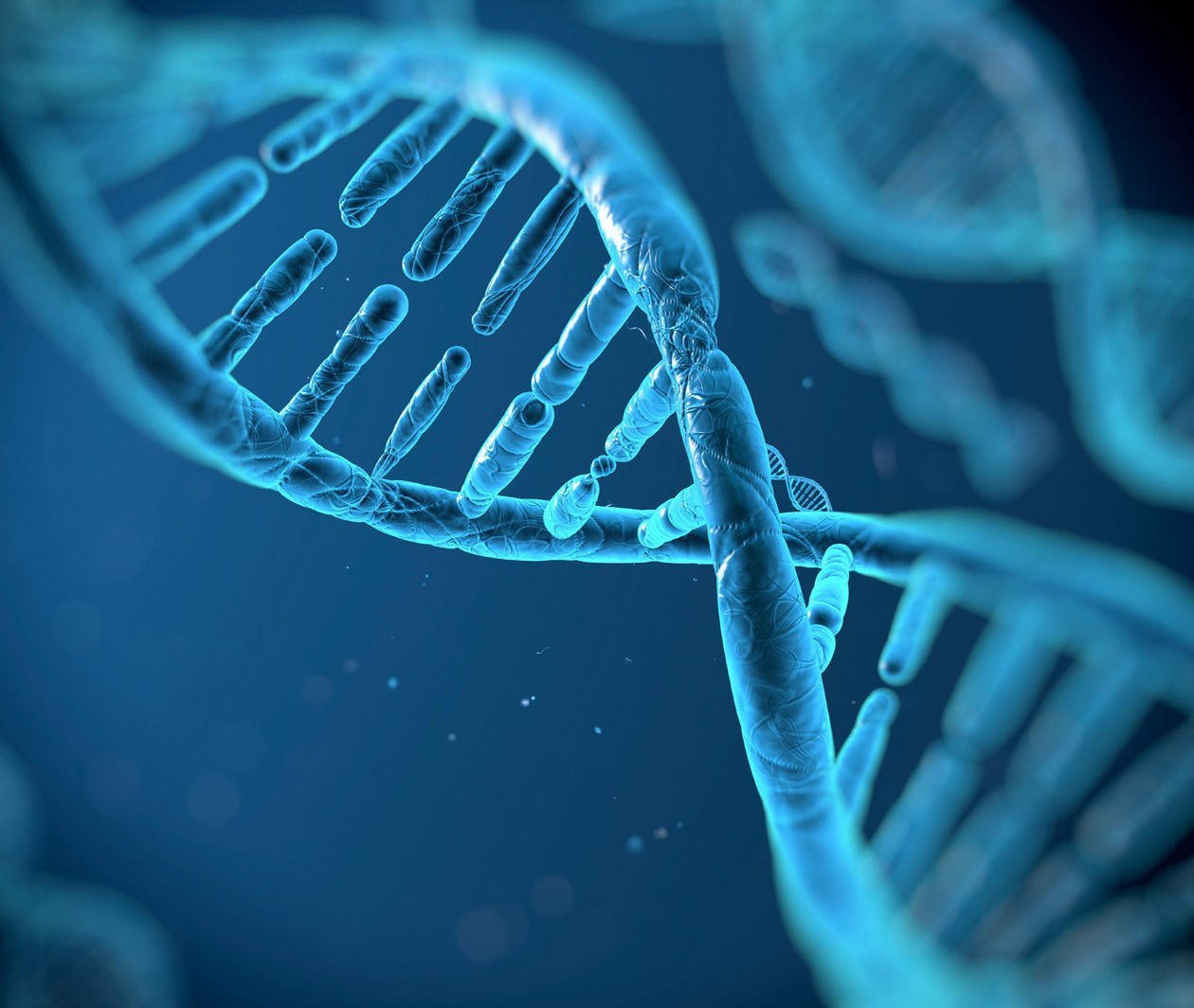This course is part of the DNA, Genetics, and Genomics: Understanding their Importance in Health and Cancer ExpertTrack
Cancer in the 21st Century: The Genomic Revolution
Discover how genetics is revolutionising the detection and treatment of the different types of cancer.

Duration
4 weeksWeekly study
4 hours100% online
How it worksIncluded in an ExpertTrack
Course 3 of 3
Cancer in the 21st Century: The Genomic Revolution
Develop your understanding of cancer causation and treatment
Cancer Research UK estimates that 1 in 2 people in the UK will be diagnosed with cancer during their lifetime. So understanding cancer, and the development of new treatments, is of intrinsic interest to us all.
On this six-week course from the University of Glasgow, you’ll gain fascinating insights into the developments that are transforming the way we understand and treat cancer.
Explore current methods for detecting and treating cancer
In order to move forward and develop new cancer detection and treatment methods, we need to understand where we’ve come from and where we are now.
You’ll start this course by learning how cancer develops in cells and the multistep process of cancer before assessing the different subtypes of cancer and how they are currently diagnosed.
Learn how genomic science is used to understand cancer
The genome holds a lot of information, some of which can indicate the possibility of cancer developing in a person.
This course will take you through how genetics can influence cancer, looking at the family pedigree and inherited predispositions to cancer. You’ll also look at cancer causation, from DNA damage and repair to potential environmental factors.
Discover the link between genetics and effective cancer therapies
The cancer therapies of tomorrow are based on the discoveries of today with cutting-edge science paving the way for more effective treatments.
You’ll delve into the future of cancer therapies and recent developments in this field of medicine. From targeted therapies to personalised cancer medicine, you’ll explore current research efforts as well as the economics surrounding these new treatments.
Syllabus
Week 1
Where Have We Come From? The 'Normal' Cell And Beyond
Starting Off!
Welcome to this course, as well as part 1 of our patient story.
The Normal Cell - How and Why Things Go Wrong
We'll begin with a recap of the structure and basic function of normal cells and what happens when this goes wrong. Then we'll look in a bit more detail of the how and why of cancer - including the field of epidemiology.
Cancer Subtypes
In this activity we consider two questions: What is pathology and why is it important in cancer?
Evaluating Sources On The Internet: Can You Believe What You Read About Cancer?
This activity will help you to think more deeply about what you read online. You'll then have the opportunity to put your skills into practice researching more about some of the causes of cancer.
Week 1 Summary
A summary discussion and round up for Week 1
Week 2
Where Are We Now?
Introduction To Week 2
An introduction to this week's course material and part 2 of the patient experience.
Tumour Suppressor Genes And Oncogenes
In cancer cells, the function of tumour suppressor genes is lost, and oncogenes are activated. In this activity you'll learn about how they function and study examples of each.
The Hallmarks Of Cancer
Cancer cells share several common characteristics, or 'hallmarks', which make them different from normal cells. In this activity you will learn about these and we will also consider how cells ensure accurate DNA replication.
Cancer Diagnosis and Screening
In this activity we will discuss how cancer some of the symptoms of cancer, along with how it is screened for and diagnosed.
Inherited Predisposition To Cancer and Genetic Counselling
Here you will learn about how a predisposition to cancer can be inherited in some families. We will also briefly look at the role of the Genetic Counsellor in helping these patients.
Week 2 Summary
A summary of what you've learned in week 2.
Week 3
Cancer Treatment And Management: From Traditional To Precision Medicine
Introduction To Week 3
Welcome to Week 3 of this course in which we'll look at how cancer is currently treated - including some targeted approaches which have been developed over the past 20 years.
Current Cancer Treatments
In this activity we will examine the traditional mainstays of cancer treatment - surgery, chemotherapy and radiotherapy.
The Beginnings of Precision Medicine: Breast Cancer, Leukaemia and Lung Cancer
In this activity you will learn how precision medicine is, to some extent, already applied in breast and lung cancer and certain leukaemias.
Week 3 summary
A summary of the material we've covered in Week 3 and a chance to test your learning
Week 4
Where are We Going? The Genomic Revolution
Introduction To Week 4
An introduction to the topics we will cover in week 4, as well as the final part of our patient story. As preparation for some later content we will also hear from a doctor involved in clinical trials of new cancer drugs.
The Bigger Picture: Precision Cancer Medicine And The Tools To Explore It
We will begin this week by exploring how an understanding of the differences between cancer genomes is vital to the developing field of precision medicine. We will also take a brief look at some of the key bioinformatics tools.
New Horizons In Cancer Therapy
In this activity we will cover several exciting areas - including immunotherapy, gene therapy and CAR T-cell therapy. We'll aso touch on the epigenetics of cancer as this gives another insight into treatment targets.
Can We Afford It?
In this activity we examine the important issue of the health economics of cancer treatment
Week 4 Summary
We hope you enjoyed this final week, and that it has given you an insight into some of the exciting ways in which genomics is transforming our understanding of cancer and the therapeutic approaches used to fight it.
Prove you're job ready
Highlight the new, job-relevant skills you’ve gained and supplement existing qualifications with a hard-earned, industry-specific digital certificate – plus one for every course within your ExpertTrack.
- Learn the latest in your chosen industry or subject.
- Complete each course and pass assessments.
- Receive certificates validated by the educating organisation.
- Impress employers with learning outcomes you can add to your CV.
- Make your career dreams a reality.
Download a PDF
Learning on this course
On every step of the course you can meet other learners, share your ideas and join in with active discussions in the comments.
What will you achieve?
By the end of the course, you‘ll be able to...
- Demonstrate an understanding of basic cell biology as it relates to the development of cancer
- Discuss factors contributing to the development of cancer including environmental and genetic aspects
- Identify current approaches used to identify and treat cancer
- Reflect on strategies which may be used in future cancer therapies and the implications for society
Who is the course for?
This course is designed for anyone interested in genomic medicine and the clinical impact of differences in our DNA. This includes those already working in healthcare professions, or anyone considering studying medicine or nursing who is interested in specialising in oncology or exploring different career paths within healthcare.
This course is also suitable for patients, family, and carer groups who wish to further their understanding of cancer, detection and treatment methods.
Who will you learn with?
My PhD was in Developmental Medicine and I am currently a Senior Lecturer in Medical Genetics at the University of Glasgow. I have also been a Senior Fellow of the HEA since 2016.
BSc (Hons) Biochemistry (1997)
PhD Biochemistry (2001)
Postdoctoral Research Associate (2001-2009)
Lecturer, School of Medicine (2009-)
'Follow’ me to see my comments in your activity feed
Who developed the course?
Established
1451Location
Glasgow, Scotland, UKWorld ranking
Top 70Source: QS World University Rankings 2020
Start learning today - free 2-day trial
After your free trial you can:
- Pay $39 per month to keep learning online
- Have complete control over your subscription; you can cancel any time
- Work at your own pace and set your own deadlines at every stage
- Only pay while you’re learning; the subscription will cancel automatically when you finish
- Complete online assessments to test your knowledge and prove your skills
- Earn digital course certificates and a final award that you can share online, with potential employers, and your professional network
- Keep access to the content of courses you complete even after your subscription ends
Learning on FutureLearn
Your learning, your rules
- Courses are split into weeks, activities, and steps to help you keep track of your learning
- Learn through a mix of bite-sized videos, long- and short-form articles, audio, and practical activities
- Stay motivated by using the Progress page to keep track of your step completion and assessment scores
Join a global classroom
- Experience the power of social learning, and get inspired by an international network of learners
- Share ideas with your peers and course educators on every step of the course
- Join the conversation by reading, @ing, liking, bookmarking, and replying to comments from others
Map your progress
- As you work through the course, use notifications and the Progress page to guide your learning
- Whenever you’re ready, mark each step as complete, you’re in control
- Complete 90% of course steps and all of the assessments to earn your certificate
Want to know more about learning on FutureLearn? Using FutureLearn
Learner reviews
Do you know someone who'd love this course? Tell them about it...
You can use the hashtag #FLCancer21 to talk about this course on social media.
Other courses in this ExpertTrack
Browse more in Healthcare & Medicine and Science, Engineering & Maths

